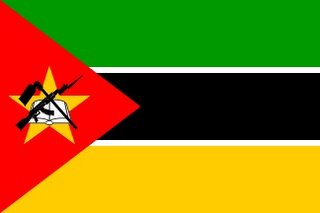Travel Tips

Documentation required to enter Mozambique
· Passport that is valid for at least 6 months.
· Valid visa (except SA passport holders)– obtainable prior to your visit ( plus R 15 entry fee payable in cash at the border).
· ID book with driver’s license.
· Vehicle’s ORIGINAL registration documents.
· SA vehicle custom clearance form (obtainable at RSA border).
· Mozambican immigration form (obtainable at border and which must be handed in on departure).
· Mozambican temporary import permit for all vehicles (including boat trailer) – obtainable at border and which is valid for 30 days – current cost is R 15.
· Compulsory Mozambican 3rd party insurance (from Global Alliance), obtainable at border – current cost R 120.
· Mozambican permit to launch a boat (obtainable at Maritime office in any major town in Moz.).
N.B. NO FIRE ARMS ARE ALLOWED TO BE BROUGHT INTO MOZAMBIQUE
Border crossings
· Komatipoort / Resano Garcia (South Africa / Mozambique) - opens at 06h00, closes at 19h00
· Namaacha / Lomaacha (Swaziland/Mozambique) - opens at 07h00, closes at 18h00
· Oshoek / Ngwenya (South Africa / Swaziland) - opens at 07h00, closes at 20h00
· Kosi Bay / Ponta do Ouro (South Africa / Mozambique) - opens at 06h00, closes at 17h00
Driving tips
· The roads in Mozambique are generally quite good, especially in the southern part of the country. They are constantly being upgraded and it is possible to travel widely with a 2-wheel drive vehicle.
· All vehicles must have emergency red triangles, this must be displayed on the front of your vehicle if you are towing a trailer or boat.
· Keep to the speed limits. This is usually 30 km/h – 60 km/h in towns and 120 km/h on the open road.
· It is advisable to keep your tank filled as the distances between filling stations could cause problems and stations occasionally run out. There are filling stations in Maputo, Macia, Xai-Xai, Quissico, Inhambane, Maxixe, Massinga, Vilanculos and Inhassoro.
· For those going to the resorts south of Maputo, it is advisable to fill up at Kosi Bay, as there is not always petrol at Ponta Do Ouro.
· Try not to travel after dark. There are a lot of people and animals using the roads as well as vehicles without lights.
· It is a good idea to learn some basic words in Portuguese as this makes a good impression in general.
When in Maputo
Maputo is generally quite safe (a lot safer than Johannesburg for example!), but being a big city, it is advisable to take the following precautions
· Avoid the display of expensive jewelery and other valuable items.
· Beware of pick-pocketing and the grabbing of valuables from cars at the central market area.
· Have your parked car guarded – a fee of 5 000 meticais is acceptable during the day.
· U – turns in Eduardo Mondlane are forbidden.
When camping
· Camping is only allowed in authorized and demarcated areas.
· Fires are only allowed in areas arranged for that purpose.
· Don’t drive in areas where there are no demarcated roads – there are still landmines in Mozambique.
· Please keep camping sites free of rubbish.
· Recruitment of locals – please agree on tariffs and type of services needed before employing to limit exploitation.
· Be very careful about the position of your campfire in relation to tents.
When making use of the beaches
· Access to beaches must be on existing roads and paths only.
· Please keep the beaches free from litter.
· It is illegal to drive on the beach unless you are launching a boat. Your vehicle could be impounded if you are caught.
When using boats
· Boats must be launched from access roads.
· Please keep the safety of people on the beach in mind.
· Please do not interfere with the activities of local fishermen trying to sustain themselves.
Emergencies
If you loose your passport, are detained or imprisoned by the Mozambican authorities or become destitute due to circumstances beyond your control and need to return to South Africa contact the Consular section at the South African High Commission – 41 Eduardo Mondlane Ave, Maputo.
Tel: 490059 / 491614 / 493030 / 490547 / 490587 (office hours) 450031 / 33 (after hours)
403029 (fax)
Money
· The currency in Mozambique is the Metical.
· The exchange rate approximately R1 = Mt 3500, and US$1 = Mt 26000.
· Rands and Dollars are also widely accepted.
· THERE ARE VERY FEW CREDIT CARD OR ATM FACILITIES IN MOZAMBIQUE.
· Travelers cheques and cash can be changed at local banks, you will require your yellow travellers receipt.
· It is best to carry some local currency especially to pay for petrol which is more expensive in rands.
Food
Most basic foodstuff can be bought in Mozambique – The local markets (reed stalls) are hygienic, even if they are not the supermarket shelves you’re used to. They sell fresh vegetables and fruit, seafood, bread, eggs, rice and other basics. Cold drinks and alcohol are widely available from shops. Red meat is not easily available outside of Maputo and fruit juice and long life milk are quite expensive.
Malaria
· Passport that is valid for at least 6 months.
· Valid visa (except SA passport holders)– obtainable prior to your visit ( plus R 15 entry fee payable in cash at the border).
· ID book with driver’s license.
· Vehicle’s ORIGINAL registration documents.
· SA vehicle custom clearance form (obtainable at RSA border).
· Mozambican immigration form (obtainable at border and which must be handed in on departure).
· Mozambican temporary import permit for all vehicles (including boat trailer) – obtainable at border and which is valid for 30 days – current cost is R 15.
· Compulsory Mozambican 3rd party insurance (from Global Alliance), obtainable at border – current cost R 120.
· Mozambican permit to launch a boat (obtainable at Maritime office in any major town in Moz.).
N.B. NO FIRE ARMS ARE ALLOWED TO BE BROUGHT INTO MOZAMBIQUE
Border crossings
· Komatipoort / Resano Garcia (South Africa / Mozambique) - opens at 06h00, closes at 19h00
· Namaacha / Lomaacha (Swaziland/Mozambique) - opens at 07h00, closes at 18h00
· Oshoek / Ngwenya (South Africa / Swaziland) - opens at 07h00, closes at 20h00
· Kosi Bay / Ponta do Ouro (South Africa / Mozambique) - opens at 06h00, closes at 17h00
Driving tips
· The roads in Mozambique are generally quite good, especially in the southern part of the country. They are constantly being upgraded and it is possible to travel widely with a 2-wheel drive vehicle.
· All vehicles must have emergency red triangles, this must be displayed on the front of your vehicle if you are towing a trailer or boat.
· Keep to the speed limits. This is usually 30 km/h – 60 km/h in towns and 120 km/h on the open road.
· It is advisable to keep your tank filled as the distances between filling stations could cause problems and stations occasionally run out. There are filling stations in Maputo, Macia, Xai-Xai, Quissico, Inhambane, Maxixe, Massinga, Vilanculos and Inhassoro.
· For those going to the resorts south of Maputo, it is advisable to fill up at Kosi Bay, as there is not always petrol at Ponta Do Ouro.
· Try not to travel after dark. There are a lot of people and animals using the roads as well as vehicles without lights.
· It is a good idea to learn some basic words in Portuguese as this makes a good impression in general.
When in Maputo
Maputo is generally quite safe (a lot safer than Johannesburg for example!), but being a big city, it is advisable to take the following precautions
· Avoid the display of expensive jewelery and other valuable items.
· Beware of pick-pocketing and the grabbing of valuables from cars at the central market area.
· Have your parked car guarded – a fee of 5 000 meticais is acceptable during the day.
· U – turns in Eduardo Mondlane are forbidden.
When camping
· Camping is only allowed in authorized and demarcated areas.
· Fires are only allowed in areas arranged for that purpose.
· Don’t drive in areas where there are no demarcated roads – there are still landmines in Mozambique.
· Please keep camping sites free of rubbish.
· Recruitment of locals – please agree on tariffs and type of services needed before employing to limit exploitation.
· Be very careful about the position of your campfire in relation to tents.
When making use of the beaches
· Access to beaches must be on existing roads and paths only.
· Please keep the beaches free from litter.
· It is illegal to drive on the beach unless you are launching a boat. Your vehicle could be impounded if you are caught.
When using boats
· Boats must be launched from access roads.
· Please keep the safety of people on the beach in mind.
· Please do not interfere with the activities of local fishermen trying to sustain themselves.
Emergencies
If you loose your passport, are detained or imprisoned by the Mozambican authorities or become destitute due to circumstances beyond your control and need to return to South Africa contact the Consular section at the South African High Commission – 41 Eduardo Mondlane Ave, Maputo.
Tel: 490059 / 491614 / 493030 / 490547 / 490587 (office hours) 450031 / 33 (after hours)
403029 (fax)
Money
· The currency in Mozambique is the Metical.
· The exchange rate approximately R1 = Mt 3500, and US$1 = Mt 26000.
· Rands and Dollars are also widely accepted.
· THERE ARE VERY FEW CREDIT CARD OR ATM FACILITIES IN MOZAMBIQUE.
· Travelers cheques and cash can be changed at local banks, you will require your yellow travellers receipt.
· It is best to carry some local currency especially to pay for petrol which is more expensive in rands.
Food
Most basic foodstuff can be bought in Mozambique – The local markets (reed stalls) are hygienic, even if they are not the supermarket shelves you’re used to. They sell fresh vegetables and fruit, seafood, bread, eggs, rice and other basics. Cold drinks and alcohol are widely available from shops. Red meat is not easily available outside of Maputo and fruit juice and long life milk are quite expensive.
Malaria
Malaria is a very real threat in Mozambique – You should consult your doctor about taking prophylaxis, and also be armed with repellants, coils, citronella etc. The best prophylaxis is Larium, but this controversial drug does have side effects with some people. The alternative is to take the combination of Paludrine and Daramal, but the down side is that it has to be taken every day (Larium is once a week). Speak to your doctor, but also remember that some doctors in South Africa don’t know that the strain of the parasite most commonly found in Mozambique is Chloroquine resistant. If you must, take the correct drugs for the area.



<< Home